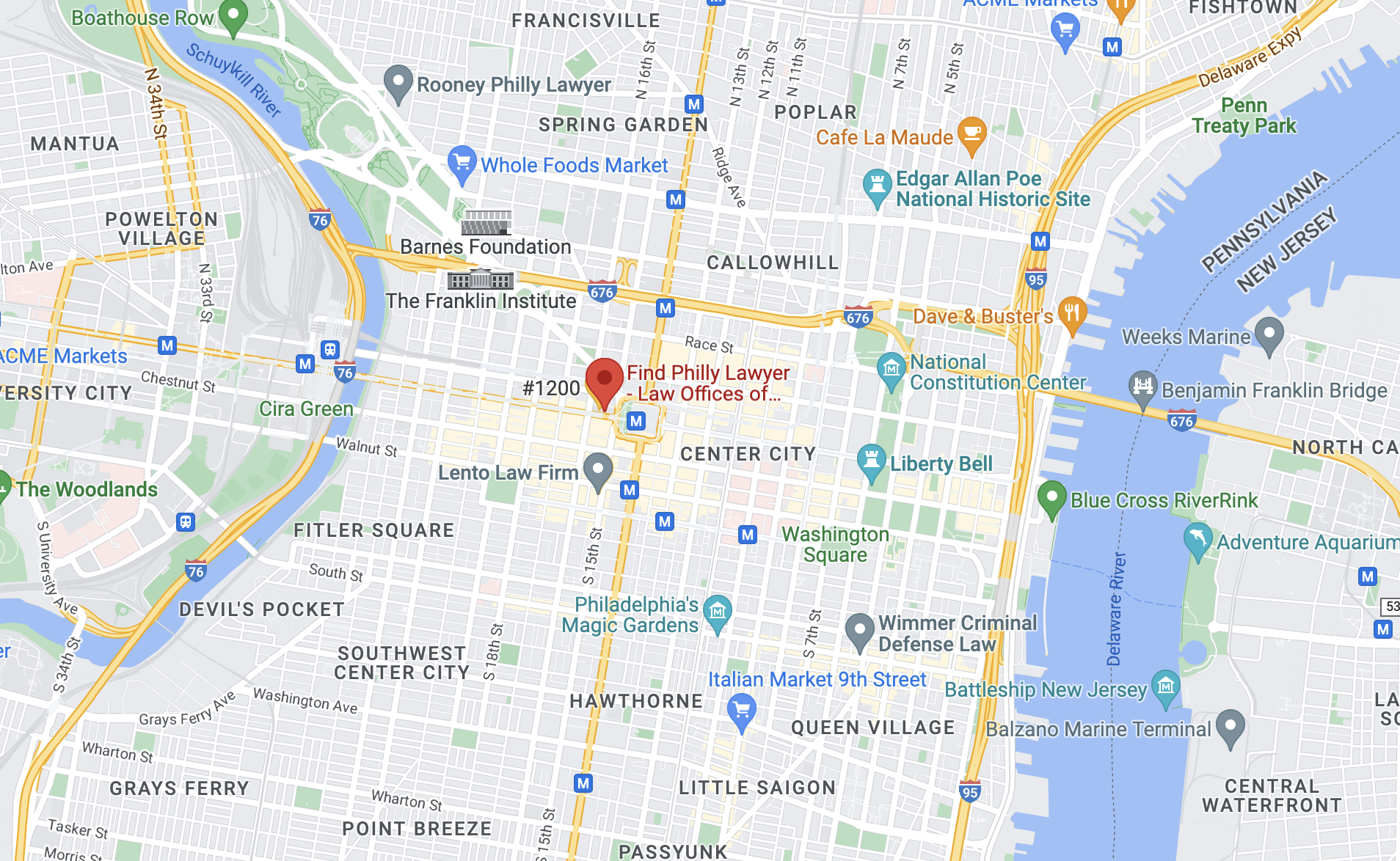Proceedings seeking relief under the state’s Post-Conviction Relief Act (PCRA) are difficult, and there is little for error. Neglecting to file on time, not including certain facts in pleadings, and not understanding what needs to be proved are surprisingly frequent mistakes.
A petition under Pennsylvania’s Post-Conviction Relief Act (PCRA) allows convicted defendants to appeal specific factors of their cases indirectly. A PCRA petition is very different from a direct appeal because a direct appeal may be about almost anything, while a PCRA petition is about a few specific legal issues. Claims of ineffective assistance of counsel are among the most common claims under the PCRA. Still, other claims, including newly discovered evidence, unlawfully induced pleas, or government obstruction, are also possible. The PCRA might also affect Pennsylvania cases heard in federal courts. The process can be extremely complex, and speaking to a lawyer about your options is a good idea.
Experienced Philadelphia criminal appeals lawyer Lonny Fish explains Pennsylvania’s Post-Conviction Relief Act and how it allows individuals to challenge a conviction in Pennsylvania. For a free case review, call The Liberty Law Team at (215) 826-3314.
An Overview of Pennsylvania’s Post-Conviction Relief Act (PCRA)
The Post-Conviction Relief Act is designed to help convicted defendants challenge their cases even after ordinary appeals have been exhausted. The appeals process is imperfect, and many issues ripe for appeal are often only realized after the window for a direct appeal has closed. You can talk to our Pennsylvania criminal defense lawyers about filing a PCRA petition in such cases.
Pennsylvania’s Post-Conviction Relief Act, commonly referred to as the “PCRA,” allows individuals serving a sentence to challenge their conviction on certain constitutional and statutory grounds. Those grounds include the following:
- Constitutional violations of significant magnitude;
- Ineffective assistance of a prior attorney at trial, sentencing, or appeal;
- An unlawfully induced guilty plea of a likely innocent person;
- Governmental obstruction of the right to appeal;
- Newly discovered evidence; and
- Establishing that no subject matter jurisdiction existed in the court where the conviction occurred.
Of these, the most frequent ground for post-conviction relief is ineffective assistance of counsel. To obtain relief under the PCRA for those claims, you must prove three points: 1) the claim is of arguable merit – meaning that the mistake that you are alleging is truly a mistake; 2) that the mistake you accuse your attorney of making was not a reasonable strategic decision; and 3) that if the claimed error did not occur, there is a reasonable likelihood that the result of the proceeding would be different.
One of the most important parts of a PCRA petition is the filing deadline. While direct appeals have a rather limited opening of only 30 days, PCRA petitions may be submitted up to 1 year after the final disposition of your case. The final disposition might be whatever the last word on the case was. In some cases, it is the date of conviction. If you filed a direct appeal, the final disposition is the date the appellate court made a final decision.
The Difference Between a PCRA Petition and Direct Appeal in Pennsylvania
A direct appeal is perhaps the most common form of appeal after a criminal conviction in Pennsylvania. This appeal is a matter of right, and almost any issues preserved at trial might come up in a direct appeal. Preserving issues for appeal is commonly done through objecting. Additionally, any denied pre- or post-trial motions are also preserved for appeal. In most cases, convicted defendants have 30 days to file a direct appeal.
These issues might be about any number of problems you experienced throughout your trial. For example, suppose you submitted a pretrial motion to suppress evidence because you believe it was seized illegally, but the judge denies your motion. In that case, you can file an appeal claiming your motion was wrongfully denied. Generally, a strong appeal is about issues that likely affected the outcome of your trial. If your direct appeal is successful, the appellate court might reverse your conviction and send your case back to be tried again.
A PCRA petition is similar to a direct appeal but is more limited and applies to somewhat different circumstances. A PCRA petition may be filed up to a year after the final disposition of a criminal case, but the petition may only be filed for the specific reasons listed above. Often, convicted defendants file PCRA petitions after exhausting a direct appeal. Our Pennsylvania criminal defense attorneys can help you determine how to approach your appeal and if a PCRA petition is helpful to your case.
In cases where defendants accepted plea agreements, a PCRA petition might be the only way to appeal their case. When accepting a plea agreement, defendants waive their right to a trial. Without a trial, there is almost nothing that could justify a direct appeal. Instead, a PCRA petition is necessary and may cover issues not normally considered on direct appeal. For example, you can claim that your plea agreement was unlawfully induced or that you were coerced into accepting.
Who is Eligible to File a PCRA Petition in Pennsylvania?
Almost all criminal defendants have a right to file a direct appeal after a conviction. The ability to appeal through a PCRA petition is not quite as ubiquitous. You must meet specific eligibility criteria to file your petition for relief. If you do not meet these criteria, the court may reject your petition, even if you otherwise think you have grounds for relief.
Eligibility criteria for Pennsylvania PCRA petitions are found under 42 Pa.C.S. § 9543(a)(1). The very first requirement is that you must have already been convicted of a crime. A PCRA petition cannot be filed proactively before you are convicted. However, suppose you and your attorney suspect a conviction is imminent. In that case, you may begin preparing a PCRA petition before a conviction, but it cannot be filed until after you are convicted.
After you have been convicted, you must meet one of the four following criteria:
You are serving a prison or probation sentence or are out on parole.
You are serving a sentence that must be completed before your disputed sentence can begin. This is common in cases where defendants are facing consecutive sentences. Defendants sometimes want to dispute a sentence but are serving other sentences first.
You have already completed the sentence you wish to dispute but are seeking relief based on post-conviction DNA testing. More details about post-conviction DNA testing are available below.
Challenging Your Trial Attorney’s Effectiveness with PCRA
When challenging your prior lawyer’s effectiveness under § 2255, it is important to remember that courts begin these proceedings believing that the representation you received was effective. This is a difficult presumption to overcome. The best way to increase the odds of success is by hiring an experienced Pennsylvania PCRA lawyer.
The very first case that Lonny Fish was hired for after entering private practice involved a client who had been convicted of worker’s compensation fraud. Hiring a Delaware County criminal defense lawyer with no private practice experience for such a case would generally be a terrible idea. But due to his time as an appellate prosecutor, he knew the PCRA inside and out.
Long filed a post-conviction relief petition on his client’s behalf. After being granted an evidentiary hearing, a judge reversed the convictions because he proved that his client’s trial attorney had been ineffective. The retrial ended in a hung jury, and his client received an offer that did not result in a conviction. He went from being convicted of fraud to a clean criminal record.
When You Must File a PCRA Petition in Pennsylvania
A petition seeking post-conviction relief must be filed within one year of the date the judgment of sentence in a criminal case becomes final. This deadline is the same for PCRA petitions filed under Pennsylvania law and for relief sought under federal post-conviction relief statutes.
Calculating that date can be difficult, but it essentially means that you must file a PCRA petition by one year after you lose on appeal or the date on which seeking an appeal expires. In certain circumstances, petitions can be filed later, but immediate action is almost always required.
The time constraints for filing under the PCRA are unforgiving. If you do not file within the limits specified in the statute, you have likely lost the right to raise the issues. Lawyers who do not practice PCRA proceedings regularly often do not understand the timeliness requirements imposed. A mistake in the time calculation could have disastrous consequences.
Common Reasons for Filing a PCRA Petition in Pennsylvania
While ineffective assistance of counsel is a common reason behind many PCRA petitions, it is far from the only reason. A convicted defendant can file PCRA petitions for multiple reasons, including many issues not necessarily preserved for direct appeal. Remember, a PCRA petition is not about hearing new evidence or determining guilt or innocence. The main goal is to convince the court that something was legally wrong with your trial on a fundamental level and that a new trial is necessary. Our Pennsylvania criminal defense lawyers can help you argue for a new trial in a PCRA petition.
Newly Discovered Evidence
Some criminal cases are very complex and involve a lot of evidence. Evidence can be hard to come by, even at the best of times, and it is possible that previously undiscovered evidence becomes important later. If this sounds like your case, you could file a PCRA petition based on important newly discovered evidence.
To have your PCRA petition heard by the court, the newly discovered evidence must be something that could have changed the outcome of your case if it had been available during your initial trial. Something minor or evidence that does not introduce new information might not cut it. Evidence that supports your claims of an alibi would likely be strong grounds for a PCRA petition. Our Pennsylvania criminal defense lawyers can review any newly discovered evidence and help you submit a PCRA petition.
One very important thing to consider when filing a PCRA petition for newly discovered evidence is the availability of the evidence during the trial. Courts often look for newly discovered evidence that was not readily available during the trial. Also, petitioners usually must show they could not obtain this newly discovered evidence earlier despite doing their due diligence.
Unlawful Guilty Plea
One of the biggest reasons that many convicted defendants cannot file direct appeals is that they accepted plea bargains or plea agreements. A plea agreement is when the defendant agrees to plead guilty and waive their right to a trial. In exchange, prosecutors agree to reduce or drop charges, and the defendant ultimately walks away, facing fewer penalties. Unfortunately, there is very little you can claim on a direct appeal if there is no trial.
If you believe your guilty plea was not lawful, our Pennsylvania criminal defense attorneys can help you submit a PCRA petition. An unlawful guilty plea might involve coercion from prosecutors and law enforcement. For example, if the prosecutor threatened you with violence or otherwise intimidated you if you did not consent to the plea agreement, the agreement is unlawful because it was coerced.
An unlawful plea agreement might also involve deception. Suppose the prosecutor told you that you should enter a guilty plea because the evidence against you is overwhelming. Next, suppose you discover the evidence was illegally obtained, and the prosecutor knew all along that their evidence was tainted, and you would likely be found not guilty in a trial due to a lack of evidence. This situation would also warrant a PCRA petition for an unlawfully induced guilty plea.
Government Obstruction
Another more sinister reason behind some PCRA petitions is unlawful interference by the government. You can submit a PCRA petition if you believe the government prevented you from having your case heard on direct appeal. The interference might include things like unnecessary time delays, providing false information about filing deadlines, or doing something else that stops you from filing a direct appeal.
The governmental obstruction might be wrongful, but it might not necessarily be intentional. For example, court officials might reject a valid direct appeal because they mistakenly believed the deadline had passed when there was really more time on the clock. You can still file a PCRA petition even though the government officials did not purposefully block you from appealing.
Constitutional Violations
You might file a PCRA petition if your conviction was due to a violation of your constitutional rights. This includes violations of the Constitution of the State of Pennsylvania and the United States Constitution. The violation must be serious enough that it undermined the truth-determining process of your trial.
This might be a due process violation or a violation of your substantive rights. For example, if you were found guilty because the trial court denied you the right to have a lawyer, this would be a major constitutional violation and grounds for a PCRA petition. Granted, such a violation is so extreme as to be unlikely, but it is a good example. Many other rights are more subtle, and you might not realize they have been violated until you speak to our PCRA attorneys.
Alternatively, you might claim a Brady violation. This occurs when law enforcement or prosecutors withhold exculpatory evidence during discovery. This is evidence that might raise reasonable doubt and help your case. In the case of Brady v. Maryland, the U.S. Supreme Court ruled that it is a violation of your due process rights if the government withholds evidence and information during a criminal trial.
Jurisdictional Issues
Jurisdiction refers to a court’s authority over a particular case or defendant. If a court does not have jurisdiction, it legally cannot hear your case. Unfortunately, issues of jurisdiction can be very complicated, and mistakes sometimes happen. You can file a PCRA petition if you were found guilty in a court that did not have jurisdiction over your case.
Jurisdictional issues come up in various types of appeals and pleas for post-conviction relief. If you claim jurisdictional problems in a PCRA petition, you have also claimed the same issue in an unsuccessful direct appeal.
DNA Evidence and PCRA Petitions in Pennsylvania
According to 42 Pa.C.S. § 9543.1(a), there are strict rules and requirements surrounding when and how a convicted defendant may address concerns over DNA evidence in a PCRA petition.
We often think of DNA evidence as a cornerstone of the criminal justice system. However, DNA testing and the use of DNA evidence in the courtroom is a much more recent development than many people realize.
Many convicted defendant believe that if DNA evidence or testing had been available during their trial, the outcome of their trial might have been much different. If you find yourself in such a situation, an attorney can help you file a PCRA petition for post-conviction DNA testing.
Certain criteria must be met for the court to grant your petition. The DNA evidence in question may have been available during your trial or discovered sometime after, but it must be available for testing when you file your PCRA petition.
If the DNA evidence in question was available during your trial or at least prior to your conviction, it must not have been subject to testing previously, or you must believe that new or updated DNA testing technology might yield substantially better or more accurate results.
Alternatively, suppose the DNA evidence was available before your conviction. In that case, you may file a PCRA petition for post-conviction testing if your counsel did not seek testing at the time of your trial if your trial happened on or before January 1, 1995.
If you and your counsel did request DNA testing on previously available DNA evidence, but you could not pay for it, and the court denied you funding despite your indignancy, you may have grounds for a PCRA petition.
Post-Conviction Proceedings Under 28 U.S.C. § 2254 for Pennsylvania Criminal Convictions
If you were convicted in Pennsylvania and are serving a sentence, this is probably your last chance for relief. It is a limited opportunity for a federal judge to review your conviction for errors of a federal constitutional magnitude, and time is of the essence if you wish to hire a seasoned Philadelphia criminal lawyer.
Time Limits
The time limit in which to file a § 2254 motion is limited. It must be filed within one year of the state conviction becoming final. This can be a difficult time to calculate because some periods, like when a PCRA petition is pending, do not count toward the one-year limit. The PCRA petition must, however, be “properly filed.” That term can be complex. It is enough to say that a criminal defendant should not wait to get a federal post-conviction proceeding started. Waiting too long can result in the loss of the opportunity.
Determining What Claims to Bring
Federal courts rarely grant relief on section 2254 motions. An experienced post-conviction attorney is the best choice to evaluate the state court record to find claims that could result in relief. Just as important, attorneys familiar with post-conviction law know the proper way to plead and present these claims.
Like calculating the one-year time limitation, determining which claims can be presented to a federal court in a § 2254 motion is complex. In many circumstances, claims cannot be presented to the federal court because they were never presented to state courts in early proceedings (like on direct appeal or in a PCRA petition). This is called default. Default can be overcome in a few ways, but a clear understanding of the law is necessary.
This process can be convoluted, and the case law interpreting the presentation of claims in a § 2254 motion is dense. It can take considerable time to go through state court proceedings to find claims that can be presented to a federal court. For this reason, it is important to get an experienced Pennsylvania post-conviction lawyer, like Lonny Fish, involved as early as possible. As long as you pick the right lawyer, the earlier he gets involved in a case, the better: when a lawyer first works on a PCRA, going through the record again for a § 2254 motion is unnecessary because he is already familiar with the case. Contact our Pennsylvania criminal defense lawyers today if you have any questions regarding post-conviction proceedings for Pennsylvania criminal convictions.
Post-Conviction Proceedings Under 28 U.S.C. § 2255 for Federal Criminal Convictions
Like its equivalent in Pennsylvania – the PCRA – § 2255 presents a person convicted of a federal crime an opportunity to challenge their attorney’s representation. Defendants can also raise other claims, such as the suppression of evidence by the government, or the existence of newly discovered evidence that could not have been found with the exercise of due diligence.
These motions must be filed within one year of a defendant’s convictions becoming final. Circuit courts of appeals have come to different conclusions about when that occurs, so the process should always begin as soon as possible. Once your criminal appeal is decided, an experienced post-conviction attorney should be contacted. It is often a good idea to get a Pennsylvania criminal appeals lawyer involved while an appeal is pending. That way, the gap between the decision on appeal and the filing of a § 2255 motion is shortened, and concerns about filing on time are avoided.
Possible PCRA Claims at the Federal Level
Much like the PCRA, § 2255 motions primarily focus on a prior trial or appellate attorney’s decisions. Proving that an attorney made an error is not enough. Instead, it must be established that the error was not a reasonable strategic choice and that the error caused prejudice to the defendant. Prejudice means that if the error had not been made, there is a reasonable likelihood that the outcome would have been different.
Arguing that an attorney made an error –commonly referred to as a claim of “ineffective assistance of counsel” – is not limited to trial. A defendant who pleaded guilty might have a claim that they would not have pleaded guilty absent bad advice and that they very well may have been acquitted at trial. These claims can also be presented for sentencing errors. A new sentencing hearing might be granted if an attorney could have argued that a sentence should be lower for a specific reason but did not make that argument.
Ineffectiveness claims can be presented for appellate representation. In other words, if your appellate attorney made an unreasonable error and you might have been granted appellate relief without the error, this claim can be raised in a § 2255 motion. The most frequent type of appellate error is failing to include an argument that stood a reasonable chance of some type of victory, such as a new trial, suppression being granted, a lesser sentence, or complete discharge from custody.
Call a Philadelphia Criminal Appeals Attorney About How You May Be Affected by the PCRA
Philadelphia criminal appeals attorney Lonny Fish is passionate about representing clients in their appeals and post-conviction relief matters. If you have any further questions regarding the PCRA or the criminal appeals process, contact our Pennsylvania criminal conviction appeals attorneys at The Liberty Law Team. Call us at (215) 731-9500 today for a free case review.





 Liberty Law Team
Liberty Law Team  (215) 826-3314
(215) 826-3314 lonny@libertylawteam.com
lonny@libertylawteam.com





